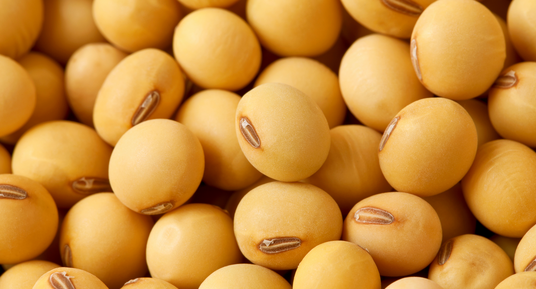The Kenya Agricultural Livestock and Research Organization (KALRO) has rolled out a drive aimed at improving the quality of seed varieties of various crops and livestock breeds within Busia County.
The initiative is in accordance with the government’s policy of food security to ensure Kenyans have access to sufficient and quality food for better health.
Speaking to the press, Linet Nasiroli Navangi, the research extension Liaison assistant in Busia County cited various activities that take place at the center.
“The KALRO seed center Alupe has various sections including seed production, dairy, and fodder crops for livestock consumption to improve on quality of animal products,” said Navangi.
The center was selected owing to its sufficient land capacity of 200 acres, and proximity to the river.
According to Navangi, this makes the center most suitable for the exercise of seed production, alongside livestock extension activities.
“This region was tasked with production of soya beans, finger millet, sorghum, cassava, sweet potato, groundnuts and fruits production,” she added.
The agricultural extension official indicated that due to the fact that the land has been idle for a long time, it is expected that the first project, which is soya bean planting, will result in high yields.
Some of the benefits of the KALRO certified seed include the fact that they have undergone thorough research, hence free from pathogens, drought resistance and early maturing.
“The salama variety of soya beans is early maturing that takes 31/2 months, rich in proteins and that’s the reason it is the most appropriate in this area, producing between 800 to 1200kgs of harvest,” added Navangi.
The organization is targeting to produce 20 tons of salama soya beans this season of short rains on 8 acres of land, which is expected to give higher yield. Other early maturing varieties of soya include saga and AC19
With regard to cassava, the organization is researching varieties with both low and high cyanide levels to establish the most suitable to farmers in the area from over 60 types of cassava available.
The extension officer encouraged farmers to acquire cassava seeds from known sources and ensure that they give sufficient time for maturity, preferably 12 months before harvesting to reduce the impact of high cyanide levels on their health.
Every KALRO center has a Mkulima shop where the public can access the organization’s products and advise on how to handle the various varieties of seeds available.
It also has a mobile application that can be downloaded on the phone to access the organization’s website.
“Due to increased demand of certified seed, the Centre has initiated together with other stakeholders, bulking of soybean certified seed. The variety with the highest demand on certified seed is the dual purpose variety DPSB 19.
This is because it is early maturing and has the highest protein content. It is not the highest seed yielder, but the market demands it for feed processing and production of texturized proteins,” she added.
Meanwhile, bean farmers in Kenya can now harvest up to 600kg per acre in just two months, thanks to a new high yielding variety, dubbed Kenya Mali or KAT SW-12 launched in the market two years ago.
Unlike other beans varieties which takes up to 120 days to mature, Kenya Mali takes half of that and can therefore, be grown for more seasons. To cultivate this variety, a farmer needs at least 25kg of certified seed per acre which can be obtained at KALRO Katumani at Sh90 per kilo.
The variety requires loose neutral soils with PH value ranging from 6.5-7. It can be intercropped with non-leguminous crops like maize for support during flowering and requires frequent weeding to eliminate unnecessary competition for nutrients.
By Absalom Namwalo





